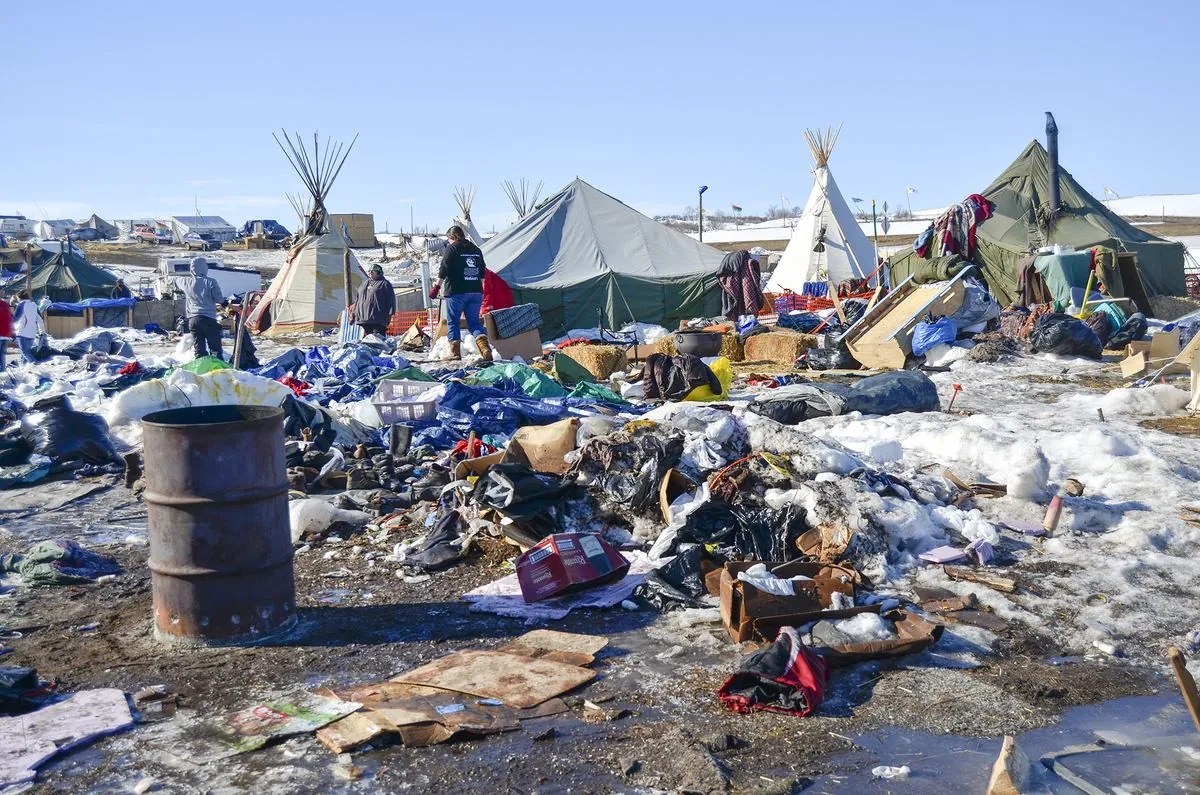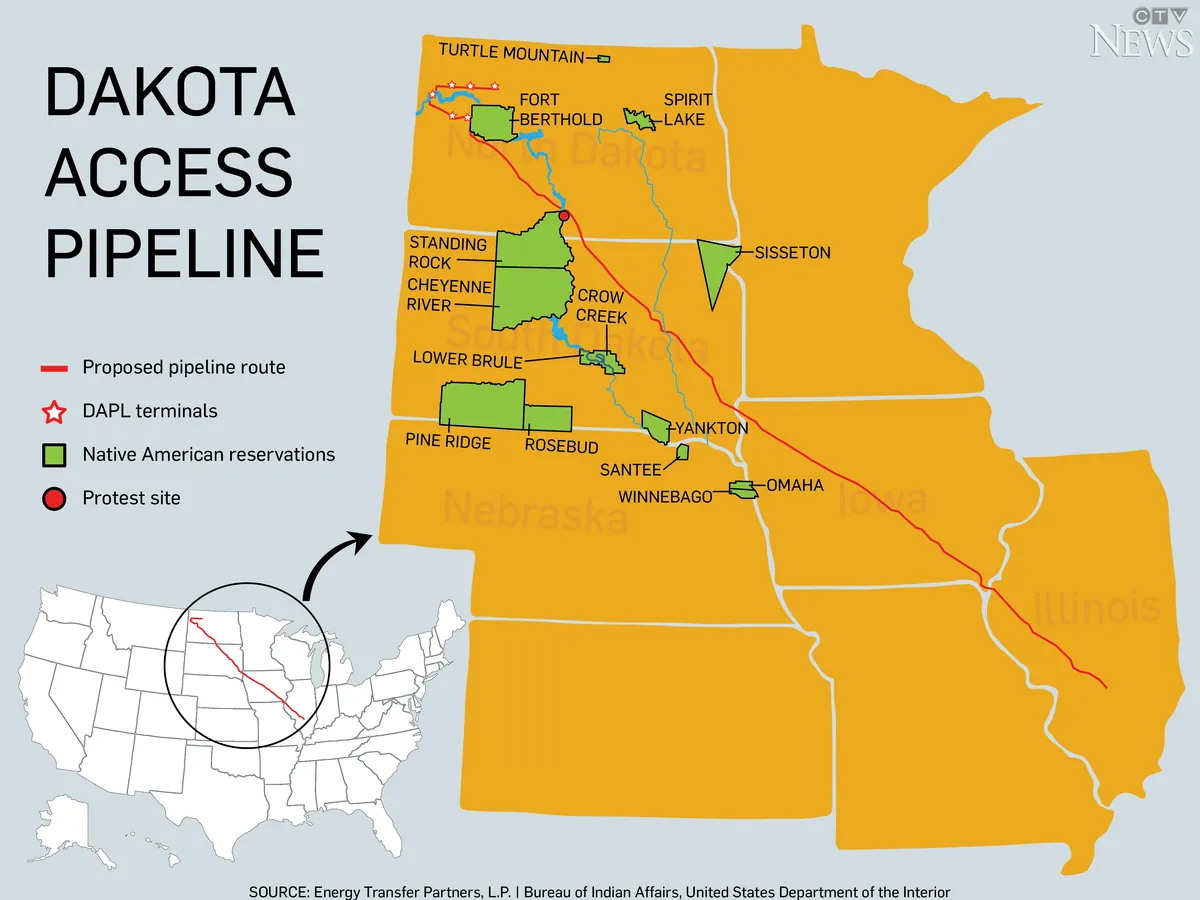Judge Rejects Recusal in Dakota Access Case Amid Columbia Law Boycott
A federal judge declines to recuse himself from a Dakota Access pipeline lawsuit, despite boycotting Columbia Law School graduates. The case involves protests and highway closure impacts.

In a recent development, U.S. District Judge Daniel Traynor has declined a request to recuse himself from a lawsuit concerning the Dakota Access oil pipeline. This decision comes amidst controversy surrounding a boycott of Columbia Law School graduates by several federal judges, including Traynor himself.
The lawsuit, filed in 2018 by members of the Standing Rock Sioux tribe and a priest, challenges the closure of a highway during the 2016-2017 protests against the pipeline. These protests were part of one of the largest gatherings of Native Americans in recent history, drawing international attention to concerns over water contamination and the protection of sacred sites.

The Dakota Access Pipeline, a 1,172-mile-long underground oil pipeline running from North Dakota to Illinois, has been a source of contention since its inception. With a capacity of 570,000 barrels per day and a cost of $3.78 billion, the project has faced ongoing legal challenges even after becoming operational in June 2017.
The recusal request stemmed from a May 2024 announcement by Traynor and 12 other judges, primarily appointed by former President Trump, stating they would not hire Columbia graduates as clerks. They cited concerns over the university becoming an "incubator of bigotry" during pro-Palestinian demonstrations.
Lawyers affiliated with Columbia Law School's Initiative for a Just Society argued that this boycott compromised Traynor's impartiality. However, the judge rejected this notion, stating that a reasonable person aware of the circumstances would not question his impartiality.
"A reasonable person who knew the circumstances at issue could not conclude an appearance of bias exists under the circumstances."
Traynor emphasized that the letter was directed at Columbia's administration due to concerns about violence and harassment of Jewish students, not the protests themselves. He maintained that he holds no bias towards Columbia students or faculty.
The case highlights the intersection of judicial impartiality, academic freedom, and the ongoing debate surrounding the Dakota Access Pipeline. It raises questions about tribal sovereignty and environmental justice, as the pipeline crosses beneath key water sources for the Standing Rock Sioux.
As the lawsuit progresses, it continues to draw attention to the broader implications of the 2016-2017 protests, which saw both peaceful demonstrations and clashes with law enforcement. The closure of part of a highway during these protests is at the heart of the current legal action, with plaintiffs alleging violations of free speech and religious rights.
This case is one of the first known instances where the Columbia clerk hiring boycott has been cited in a recusal request. It underscores the complex relationship between judicial decisions and broader societal debates, particularly in cases involving contentious infrastructure projects and civil rights.


































